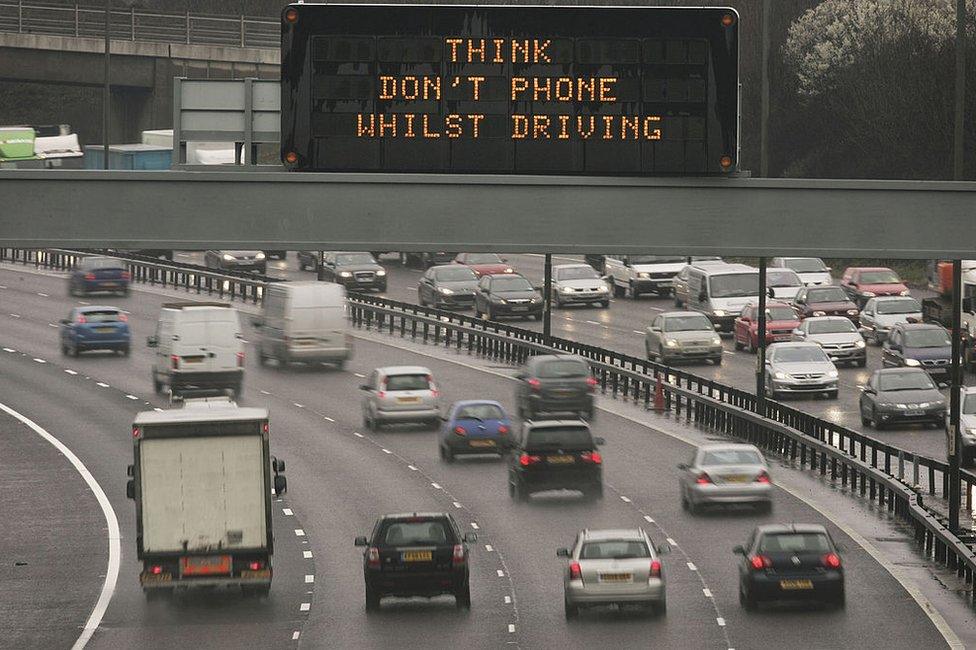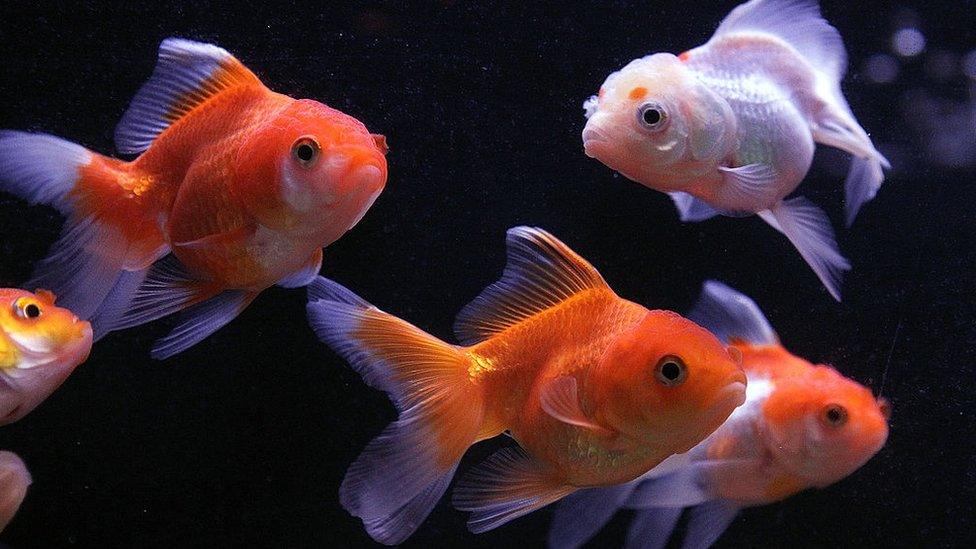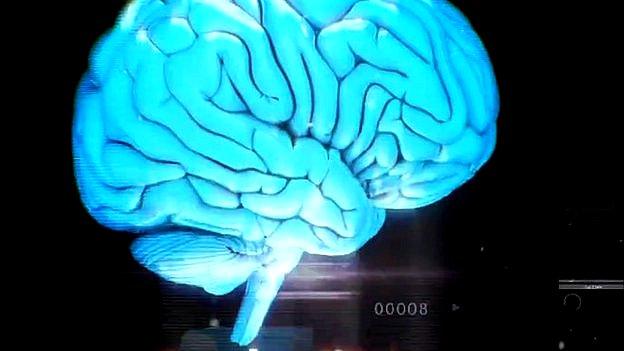Busting the attention span myth
- Published

You probably won't get to the end of this article. Everyone knows our attention spans are getting shorter. It's just obvious. Or is it?
In the always-connected world of social media, smartphones and hyperlinks, external in the middle of everything you read, it can feel that much harder to stay focused.
And there are statistics too. They say that the average attention span is down from 12 seconds in the year 2000 to eight seconds now. That is less than the nine-second attention span of your average goldfish.
You might have seen those stats in Time magazine, external, the Telegraph, external, the Guardian, external, USA Today, external, the New York Times, external or the National Post, external. Maybe you heard a Harvard academic citing them on US radio, external. Or perhaps you read the management book Brief, external.
But if you pay a bit more attention to where the statistics come from, the picture is much less clear.

Find out more
More or Less is on the BBC World Service on Fridays.
You can listen online, subscribe to the programme podcast and follow the team on Twitter, external

All those references lead back to a 2015 report by the Consumer Insights team of Microsoft Canada, who surveyed 2,000 Canadians and also studied the brain activity of 112 people as they carried out various tasks.
However, the figure that everyone picked up on - about our shrinking attention spans - did not actually come from Microsoft's research. It appears in the report, but with a citation for another source called Statistic Brain.

A quick Google and it is easy to find where they got it from. The Statistic Brain website looks pretty trustworthy too. It even says they "love numbers, their purity, and what they represent" - just the kind of people with whom we, at More or Less, can get along.
As if to prove it, the number-lovers at Statistic Brain source all their figures. But the sources are infuriatingly vague.
And when I contact the listed sources - the National Center for Biotechnology Information at the US National Library of Medicine, and the Associated Press - neither can find any record of research that backs up the stats.
My attempts to contact Statistic Brain came to nothing too.
I have spoken to various people who dedicate their working lives to studying human attention and they have no idea where the numbers come from either.
'Task-dependent'
In fact, they think the idea that attention spans are getting shorter is plain wrong.
"I don't think that's true at all," says Dr Gemma Briggs, a psychology lecturer at the Open University.
"Simply because I don't think that that's something that psychologists or people interested in attention would try and measure and quantify in that way."

Dr Briggs has done extensive research on how dual tasking affects attention spans - such as when drivers use their phones
She studies attention in drivers and witnesses to crime and says the idea of an "average attention span" is pretty meaningless. "It's very much task-dependent. How much attention we apply to a task will vary depending on what the task demand is."
There are some studies out there that look at specific tasks, like listening to a lecture.
But the idea that there's a typical length of time for which people can pay attention to even that one task has also been debunked.
"How we apply our attention to different tasks depends very much about what the individual brings to that situation," explains Dr Briggs.
"We've got a wealth of information in our heads about what normally happens in given situations, what we can expect. And those expectations and our experience directly mould what we see and how we process information in any given time."
Some also suggest that evidence of ever-shorter shot lengths in films shows attention spans are dwindling. But the academic behind that research says all it shows is that film-makers have got better at trying to grab our attention.
'An interesting irony'
There's something else fishy about those attention span statistics too.
It turns out that there is no evidence that goldfish - or fish in general - have particularly short attention spans or memories, despite what popular culture suggests.

Have smartphone users and goldfish had their attention spans unfairly maligned?
I spoke to Prof Felicity Huntingford, who has spent almost half a century studying fish behaviour and just delivered a series of public lectures under the title, How Smart Are Fish?
"Goldfish can perform all the kinds of learning that have been described for mammals and birds," she says.
"And they've become a model system for studying the process of learning and the process of memory formation, exactly because they have a memory and because they learn."
She says there have been literally hundreds of scientific papers over the decades on goldfish learning and memory. I found a reference to a study on fish memory as early as 1908.
"That a species that's used by neuro-psychologists and scientists as a model for studying memory formation should be the very species that has this reputation - I think that's an interesting irony," she says.
So goldfish don't have short attention spans or memories. There is no evidence human attentions spans are shrinking.
And you have got to the end of this article when you could have been watching a three-second video of me being hit in the face by a football.
More or Less is on the BBC World Service on Fridays. You can listen online, subscribe to the programme podcast and follow the team on Twitter, external.
Related topics
- Published26 September 2016

- Published1 April 2016

- Published16 September 2015

- Published7 August 2015
